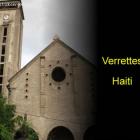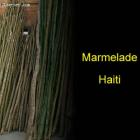ADVERTISEMENT
Black Vs Mulato - Haiti Observer Blog
Black Vs Mulato, Haiti Observer Blog. Read the following articles about Black Vs Mulato
Arcahaie, Historical Heritage and plantain capital - Li pwodi Anpil Bannann
Haiti has a lot of popular cities and municipalities, one of which is the town of Arcahaie in the Arrondissement of Arcahaie. This town is one of the two that make up the entire arrondissement, while Cabaret is the other municipality. It houses more than 106,500 people and is a recognized town.
Arcahaie nan awondisman Arcahaie. Vil sa a se youn nan de a ki fè moute awondisman an tout antye, Cabaret se lòt minisipalite a. Plis pase 106.500 moun Ap Viv ladan-Li.
Arcahaie's popularity is mainly attributed to its historical heritage, as a lot of significant incidents in the past occurred here. One of them is the memorable 1803 Congress, wherein the unity if Haiti's black people and mulattos was signified. It can be recalled that the country's founding father, Jean-Jacques Dessalines, replaced the French flag with a blue and red flag after tearing it apart during the Congress. It was the first time in three years of revolution that Haiti's unity had been symbolized.
Jean Price-Mars a Haitian of Stellar Intellect
Jean Price-Mars, leading mind of the Black intelligentsia, assumed prominent roles in the Haitian government as a young person barely out of his teens. The government delegated him Ambassador of Haiti to France, Germany, the Dominican Republic, and U.S. His scientific aptitude led him to study anthropology and medicine, his gift for analysis made him an academician.
Price-Mars worked as teacher, politician, and writer. During his political career, he served as Secretary of State, ran for the presidency, and represented his country as two-term senator. As thinker and writer, he advocated negritude, a pride in being black and the empowerment that meant.
Elie Lescot Ruled by Force and Intimidation
Elie Lescot became Haiti's 31st president in 1941. Born into the mulatto elite class, Lescot began his political career after the death of his wife. He served in the Chamber of Deputies, Parliament's lower house, later becoming a political appointee under presidents Borno and Vincent.
His position as Ambassador to the Dominican Republic (DR) led him to become an ally of DR President Trujillo. Trujillo's political capital helped Lescot win the presidency, despite the Chamber of Deputies opposition of him.
Elie Lescot immediately wielded power by installing himself as Commander of the Military Guard and populating government posts with Caucasian and mulatto elites. Haiti's majority black populace detested him for his prejudice.
Populist President Dumarsais Estime
Dumarsais Estime, Haiti's 33rd president, held office for four years. His presidency is notable because he was the first black leader elected after the U.S. occupation ended in 1934.
Although Estimé married a mulatto elite, his determined educated blacks were to make up the majority of his administration's political appointees. Reversing mulatto elite influence, he championed an education initiative, building schools in poverty-ridden villages and offering advanced teacher-training. This effort created a 45% rise in elementary school attendance.
Dumarsais Estime's agenda included road-construction projects, literacy programs, and improving community services. He also amended the Constitution to provide workers the right to form unions and raised the minimum wage.
The Wedding of Jean Claude Duvalier and Michele Bennett
It was revealed that the two met in High school. However, the romantic relationship between Michele Bennett and Jean Claude Duvalier did not begin until ten years later. the wedding that was considered the biggest event of the time took place on May 27, 1980. The wedding was estimated to cost over US$3 million. The marriage also brought an underlining issue to the surface in the Haitian society. Many saw it as renewed symbol of alliance with the mulatto elite by the Duvalier regime. This was in direct contrast to the policy of Francois Duvalier who in 1957 was fighting against presidential candidate Louis Dejoie, a mulatto land-owner and industrialist from the north of Haiti. Francois Duvalier used used a Noiriste strategy to challenge the mulatto elite and appealed to the Afro-Haitian majority.
Following the wedding and the increased power gained by Michele Bennett as the new First Lady, new friction started to flair-up between her and her mother in law, Simone Duvalier.
Francois Duvalier, Minister of Public Health under Dumarsais Estime
Francois Duvalier who was appointed under the government of Estime, joined the government of President Dumarsais Estime, becoming director general of the national public health service. In 1948 he is appointed as minister of public health and labor.
After the military coup that overthrown the Estime regime on 10 May. 1950, Duvalier returns to his medical career. However, quietly and behind the scenes he begins organizing against the military regime that was in place then. By 1954 he is the central opposition figure and goes underground, hiding inside of the country.
The election of Dumarsais Estime represented a break with the traditional Haitian politic at the time. For one, he was anti-elitist and therefore generally anti Mulatto. The constitution was changed and came into effect in November 1946. He increased the representation of middle-class and lower-class blacks in the public sector and suggested that voodoo be considered as a religion equivalent to Roman Catholicism
Dumarsais Estime, Paul Magloire and Francois Duvalier shaped Haiti
Here is a picture of three major players in the history of haiti: Dumarsais Estime, Paul Magloire and Francois Duvalier
Dumarsais Estime came into power in haiti following a seven-month period of political wrangling. His administration was marked by confrontation with the American government.
The Noiriste government of Dumarsais Estime was noticed by many in the international community. Most Government jobs during his administration, specifically cabinet positions, were reserved for black professionals instead of members of the Mulato elite.
Focus was also on education where he built many provincial schools and expanded training for teachers
Francois Duvalier Reign in Haiti
Francois Duvalier, 40th President of Haiti, began life in Port-au-Prince. Born to a well-to-do family, he earned a medical degree from the University of Haiti. After serving as a political appointee under President Estimé, he ran for the presidency under a populist platform that won support from the Afro-Haitian electorate. He won and began his rule of tyranny, manipulating the Constitution to declare himself "President for Life".
Francois Duvalier tolerated no opposition to his repressive policies. He intimidated his enemies, routinely ordering assassinations, an estimated 30,000 of them. Many educated Haitians fled Haiti, and the island has never recovered its intelligentsia.
Daniel Fignole a Brilliant Labor Leader
Daniel Fignole, born in 1913 in Pestel and raised in grinding poverty, suffered from childhood malnutrition. To escape the poverty of his birthplace, Daniel re-settled in Port-au-Prince and sought an education. He proved to be an excellent student, winning acceptance to a top-tier university in the capital.
During the early 1940s, Daniel Fignole published the leftist, Chantiers, in which he harshly criticized the mulatto elite of Haiti. President Elié Lescot, provoked by Fignolé's attacks, stopped the publication, axed him from his government job, and spied on him.
Indifferent to government actions, Daniel Fignole kept organizing the working-class of Port-au-Prince. They became aware of him as an electrifying orator, motivational writer, and powerful labor leader. It was rumored he could rally mass demonstrations at a moment's notice. In 1947, he headed the Peasant Worker Movement, a tight-knit union comprised of every labor sector.
Paul Magloire, Haiti's 35th president
Paul Magloire, Haiti's 35th president, was born in 1907, heir of a military father. He followed his father's career path, enlisting in the army and rising to Chief of Police in Port-au-Prince.
Paul Magloire played a pivotal role in overthrowing two Haitian presidents, Élie Lescot and his successor, Dumarsais Estimé. President Estimé, in a fruitless effort to draw out his time in office, attempted to amend the Constitution. The mulatto elite aided Magloire in deposing Estimé. Magloire then took the reins of power as President of Haiti.
During his term, Paul Magloire poured money into tourism, Haiti becoming known as a desirable vacation destination for foreign travelers. Imposing a tax on coffee-bean exports, he used the monies for development projects, raising living standards of the impoverished, as well as improving city services. Most notably, he gave the right-to-vote to women. In foreign policy, he forged stronger relations with the Dominican Republic, reversing the violent and unstable history they had shared in the past.
Our objective is to share with you news and information about Haiti and the people of Haiti. Traditions, habits and the way we were or grew are alive in this site. We highly recommend that you Subscribe to our Newsletter and also share with us some of the things that are memorable and made us unique people.

 Haiti tech Summit
Haiti tech Summit  Black Friday Shopping Season
Black Friday Shopping Season  Verrettes, Haiti
Verrettes, Haiti  Marmelade, Haiti
Marmelade, Haiti  La Chapelle, Haiti
La Chapelle, Haiti